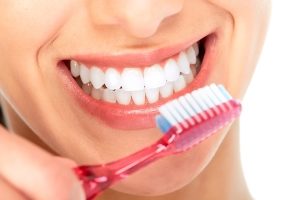Get the Truth About Periodontal Disease

Your oral health can impact your general health in a number of ways, which is why regular and proper dental care is so important. When you visit your dentist serving Bloomingdale on a regular basis, he or she can screen you for abnormalities while cleaning your teeth. This will allow you to catch any complications early on and enjoy an elevated chance of undergoing successful treatment. One of these complications is periodontal disease. Read on if you would like to get the truth about periodontal disease.
Understanding the Signs
Aside from regular dental checkups, the only way you can find out if you have periodontal disease is by familiarizing yourself with the signs. One of the most prominent signs of this complication is swollen bleeding gums. This sign typically comes to light while you are brushing your teeth or eating, and may come as quite a surprise. If you notice that your gums are looking redder than you think they should, make a trip to your dentist’s office as soon as you can. If you do not catch this problem early, periodontal disease may act as a catalyst in the progression of such diseases as diabetes and heart disease.
Maintenance and Prevention
The best way to treat periodontal disease is to avoid it entirely. Prevention is the key, and proper maintenance is your optimal route. It is crucial that you brush your teeth twice each day with fluoride toothpaste. Many individuals think that flossing every day is unnecessary, but this is not the case; flossing is an important aspect of dental hygiene and should not be forgotten. Try to limit snacking in between meals, and eat a healthy, balanced diet. It is also wise to avoid stress as much as possible and cut down or eliminate tobacco use.
Visiting a Periodontist
If you think you might be showing signs of periodontal disease, see a dentist or a periodontist. A periodontist is specially trained in dealing with gums and can easily recognize the signs of periodontal disease.
